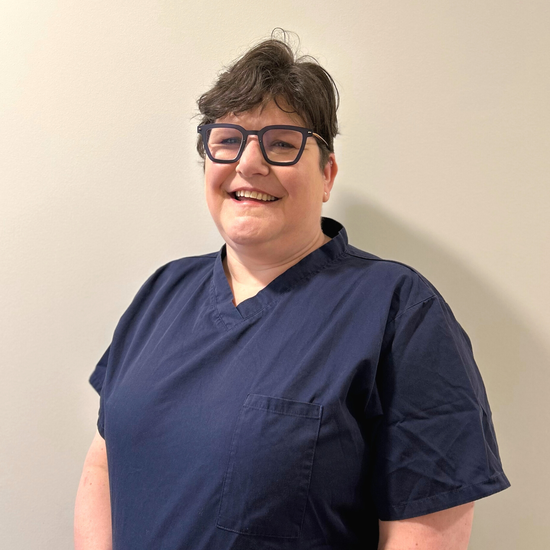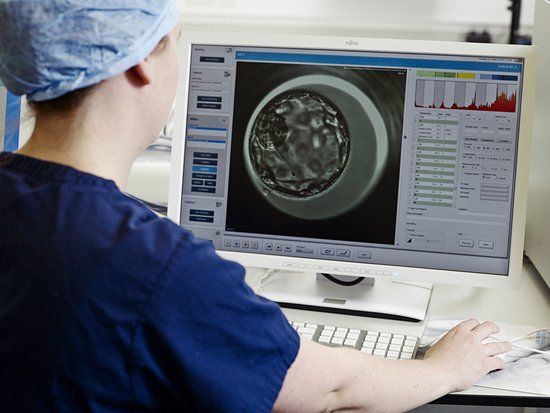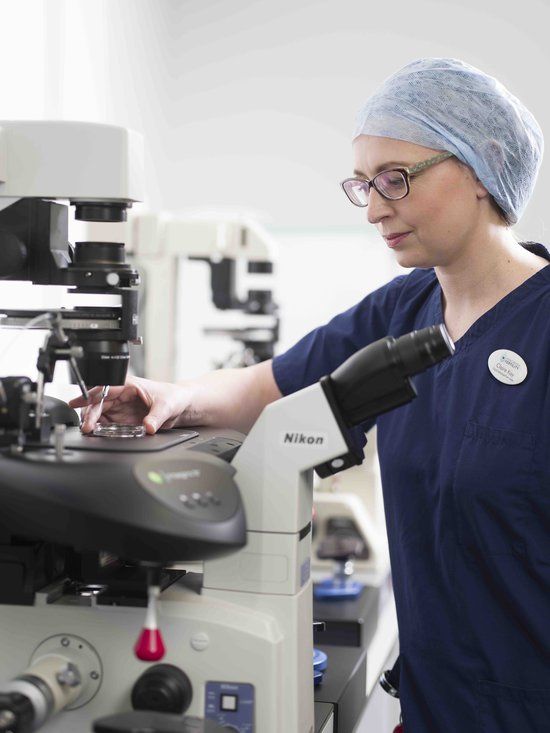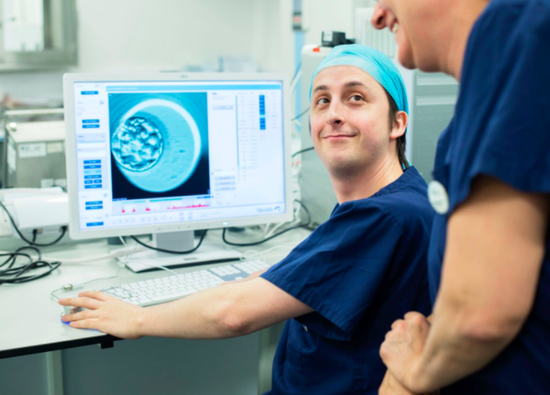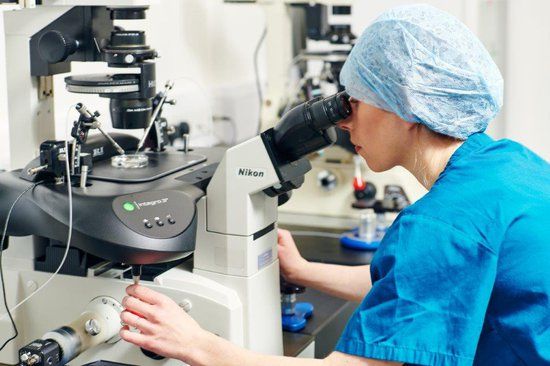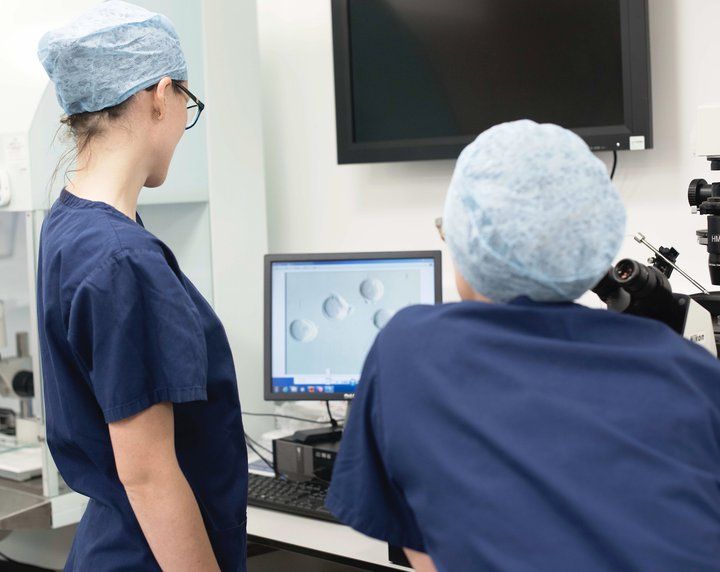
Did you know that it takes only a few days for us to identify your best embryo for transfer?
After your eggs are retrieved in IVF, they are fertilised with partner or donor sperm. And over the next 48 hours, we’d hope to see them grow and change as amazing things happen to make an embryo suitable for transfer.
Take a look at an embryo’s typical journey so you can understand the different development and growth stages, and when embryo transfer might happen for you:
Day 1:The morning after egg retrieval we examine your eggs for signs of fertilisation. We need to see that the genetic material of the egg and sperm have joined together. If your eggs have fertilised, they are now known as embryos.
Day 2:We’d now expect to see cell division – or cleavage - start to happen. This is when the embryo divides from a single cell to multiple cells. It will split from a single cell to two cells, two into four, and so on. If you don’t have many embryos, we may advise that your embryo is transferred now.
Day 3:The cells continue to divide, and the embryo starts to change shape slightly, becoming more compact. Embryo transfer may also be recommended now.
Day 4:Significant cell changes happen as the cells transform and divide rapidly as the embryo progresses into what is known as ‘Blastocyst stage’.
Day 5:The embryo is now a Blastocyst – an embryo that’s reached a specific advanced cell stage. Cells have begun to differentiate, some of the cells will form the baby and others will form the placenta. Embryo development in our laboratory is now complete. If your embryos have reached this stage, it’s your embryo transfer day.
Tailoring embryo transfer day to you
When embryo transfer happens is individual to you and depends on how your embryos grow and how many embryos you have. Our expert embryology team will advise when the time is right, to give you your best chance of pregnancy. It may be best to transfer as soon as possible, so your embryo can develop naturally in your body.
Choosing embryos to transfer
We’ll talk you through how your embryos have developed on transfer day. We’ll explain which embryo we recommend transferring. If you have good quality embryos left that have reached a minimum development stage, we can preserve them for use in future IVF cycles.
Caring for your embryos
Our embryologists and lab team care for your embryos in the best possible laboratory environment. Even the air quality in our state-of-the-art lab is monitored, so your embryos safely develop in optimum conditions. You also have the choice of standard incubator culture or undisturbed, ‘time-lapse’ embryo development for your cycle.
If you’d like to know more about embryo development, speak to our Patient Advisors on 0161 300 2737. To start IVF with us, self-refer online. We don’t have a waiting list.
Last updated: 24th May 2018

